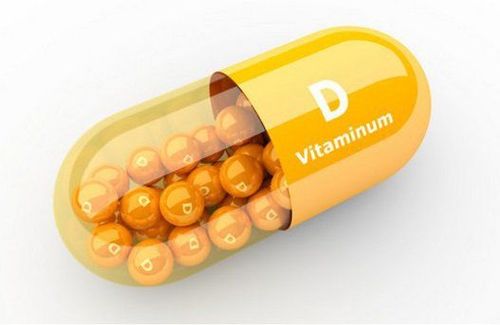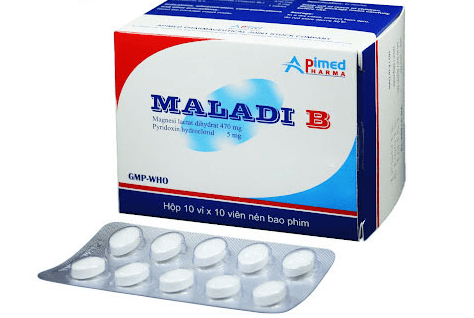This is an automatically translated article.
In some cases, it is recommended to use complementary foods, such as folic acid supplements before conception and early pregnancy, daily supplements containing vitamins A, C and D for children from 6 months to 5 years, supplement D during the fall and winter months. Depending on each specific need or health condition, the doctor will consider consulting the use of dietary supplements.
1. What is a dietary supplement?
There are many products sold as "food supplements" (described as "functional foods" in the United States), available for purchase from stores and over the Internet. These products include vitamin and mineral supplements (e.g., multivitamins, vitamin E, zinc), plant or herbal products, protein supplements, and many others (eg. : glucosamine or probiotics). Food supplements are also available in a variety of forms and dosages, including tablets, capsules, powders, beverages, oils and depending on the product type and intended use, e.g. dietary supplements for adults, nutritional supplements for the elderly.
According to European Union regulations, the following definition of "food supplement" is given as follows:
"Any food intended to supplement the normal diet and as a concentrated source of vitamins or mineral or other substance with nutritional or physiological effects, used alone or in combination, and sold in dosage form."
These products focus on supplements containing vitamins, minerals and/or other nutrients (e.g. omega 3 fatty acids), although information on how these products are administered also includes related to other types of products sold as "food supplements".

Thực phẩm chức năng giúp bổ sung các chất dinh dưỡng cần thiết cho cơ thể
According to a survey of 2,000 UK consumers (aged 16 and over), conducted in September 2018 found that 59% of consumers said they had taken vitamins, minerals or other products. supplement at some point in 2018 and 34% said they take a supplement daily (38% of women and 29% of men). Spending on vitamin and mineral supplements in 2018 is estimated at £442 million and popular supplements include cod liver oil and multivitamins, as well as single vitamin and mineral supplements other.
2. What supplements are recommended?
The Department of Health and Social Care recommends certain supplements for certain groups of people at risk of deficiency. The following nutrients are particularly recommended as dietary supplements in the UK:
Vitamin D
Vitamin D contributes to the development and maintenance of healthy bones and teeth. During the spring and summer months in the UK, most people can get the vitamin D they need through exposure to sunlight during sun exposure and through a healthy, balanced diet. During the fall and winter, adults and children 5 years of age and older should consider taking a supplement containing 10 micrograms of vitamin D. For breastfed infants (0-1 years), children aged 0 1-4 years of age, as well as adults with little or no exposure to sunlight (eg, those rarely outdoors or those who wear clothing that covers most of their skin), these individuals should a daily vitamin D supplement containing 10 micrograms.
Vitamins A, C and D for toddlers and young children
Vitamins A and C perform a wide range of functions in the body including supporting the immune system and keeping skin healthy. Young children who are in a period of rapid growth, especially those with poor appetites, may not be getting enough vitamin A or C from their diet and it can be difficult to get enough vitamin D from food alone. Therefore, all children 6 months to 5 years of age are recommended to take a daily vitamin supplement containing vitamins A, C and D. Children who are receiving 500ml or more of formula per day should not be given supplements. supplement, because formula has been fortified with these substances.
Folic acid and pregnancy
Experts recommend that women who are pregnant or may become pregnant take a daily supplement containing 400 micrograms of folic acid, from before conception until 12 weeks pregnant. This is to reduce the risk of the baby being born with a neural tube defect (NTD).

Vitamin D là một loại thực phẩm bổ sung có lợi cho xương và răng
3. Is there evidence that supplements reduce the risk of chronic disease?
There are many potential reasons why consumers might use vitamin, mineral or other supplements, such as to increase energy levels, lose weight or prevent colds, even Although many people are concerned with maintaining their overall health and well-being. This includes taking supplements to protect against the risk of chronic diseases, including cardiovascular disease (for example, heart attack or stroke) and cancer.
However, results from large randomized controlled trials, which have examined whether supplement use can reduce the risk of cardiovascular disease, cancer, or all-cause mortality, generally do not show beneficial effects. In some cases, the use of high-dose supplements (eg, beta-carotene) has been shown to have an adverse effect on disease risk.

Chất bổ sung làm giảm nguy cơ mắc bệnh tim mạch
4. What does supplement research show?
Several reviews and meta-analyses have looked at the impact of vitamin and mineral supplementation on chronic disease risk.
A recently performed meta-analysis of more than 200 trials (published in May 2019), including nearly 1 million participants, found no significant effects of the supplement on with mortality or cardiovascular disease. Comprehensive review and meta-analysis of data from 179 randomized controlled trials (published in 2018) that analyzed the effects of 14 vitamins and minerals separately, as well as in combination (multivitamins and multivitamins). , B-complex vitamins and antioxidants), for the risk of cardiovascular disease (coronary artery disease, heart attack, or stroke) and all-cause mortality and cardiovascular disease. Overall, no convincing evidence was found that supplements were beneficial to the study results. While some evidence has been found, B vitamins and folic acid may reduce cardiovascular disease and folic acid may reduce stroke. In 2014, the U.S. Preventive Services Task Force (USPSTF) concluded that there was insufficient evidence to assess the balance between the benefits and harms of taking supplements. single, combined (eg, vitamin D and calcium) or multi-nutrient (containing 3 or more vitamins/minerals) supplements to prevent cardiovascular disease or cancer. The U.S. Preventive Services Task Force (USPSTF) recommends against using beta-carotene or vitamin E supplements to prevent cardiovascular disease or cancer.

Nhiều nghiên cứu thực phẩm bổ sung không có tác dụng
The Cochrane review study published in 2012, evaluated the evidence on antioxidant supplements (beta-carotene, vitamin A, vitamin C, vitamin E, and selenium) and 78 randomized controlled trials. There is no evidence to support the use of these substances to reduce the risk of death. Several controlled trials have also been conducted on specific nutrients including folic acid, vitamins E and A, calcium, vitamin D, and omega 3 fatty acids, to investigate whether they might reduce risk sick or not. Overall, these studies do not provide firm evidence that single nutrient supplements can have a beneficial effect on the risk of diseases such as cardiovascular disease or cancer. Why do so many trials show that supplements don't work?
The first reason for the confusion about the evidence for supplements and disease risk is that some observational studies have found beneficial effects, but then randomized controlled trials have not give similar results. The reason for this inconsistency is most likely because people who use supplements tend to lead healthier lifestyles.
Studies have shown that people who use supplements have higher levels of education and income, and tend to have healthier lifestyles overall, including physical activity levels. Being taller, not smoking, drinking less alcohol and maintaining a healthy weight - all of these factors have been linked to a reduced risk of chronic disease.
People who take supplements may also have a more nutritious diet than those who don't, and therefore have a higher nutritional intake from food and possibly a reduced risk of disease. chronic diseases without the need for supplements.
The impact of nutrients from supplements on food was explored in an observational study of 30,000 US adults published in 2019, looking at nutrient intake from both food and dietary supplements. The use of a single or multi-nutrient supplement was not associated with a reduced risk of all-cause mortality, cancer, or cardiovascular disease, after accounting for education and lifestyle factors. However, adequate intake of certain nutrients from food sources (vitamin A, vitamin K, magnesium, zinc, and copper) is associated with a reduced risk of all-cause mortality or cardiovascular disease.
Eating a varied and balanced diet can provide almost all the vitamins, minerals and other essential nutrients needed for good health, as well as other important ingredients in the diet. Diet, such as fiber, is important for maintaining gut health, as well as reducing the risk of conditions like type 2 diabetes, heart disease, and some cancers.
For children to be healthy and develop well, it is necessary to have a nutritious diet in terms of quantity and quality balance. If children are not provided with adequate and balanced nutrients, it will lead to diseases of excess or lack of nutrients, which adversely affect the comprehensive development of children in terms of physical, mental and motor skills.
Children who do not eat properly are at risk of micro-mineral deficiency causing anorexia, growth retardation, malabsorption,... If they notice the above signs, parents should supplement their children with products. The supplement contains lysine, essential micro-minerals and vitamins such as zinc, chromium, selenium, and B vitamins to help fully meet the nutritional needs of children. At the same time, these essential vitamins also support digestion, enhance nutrient absorption, help improve anorexia, and help children eat well.
Parents can learn more:
Signs of zinc deficiency in children
Micronutrient deficiency and failure to gain weight in children
Please regularly visit Vinmec.com website and update useful information to take care of your child. Take care of the baby and the whole family.
Reference source: nutrition.org.uk













